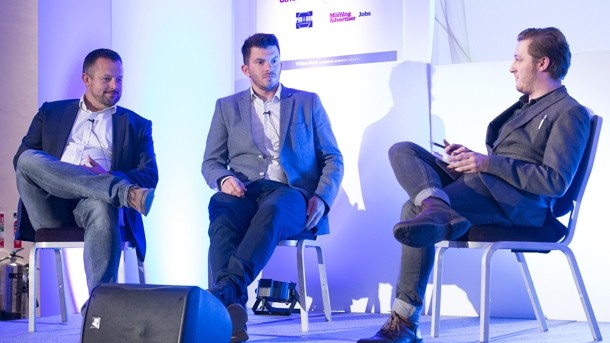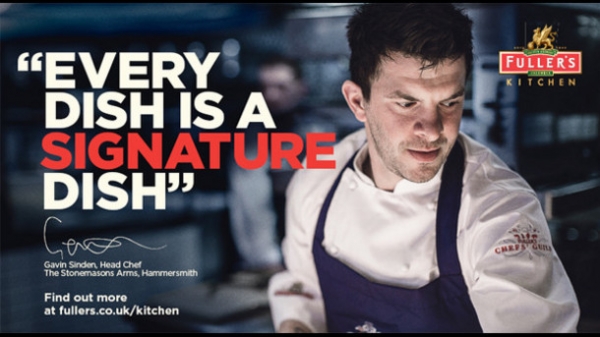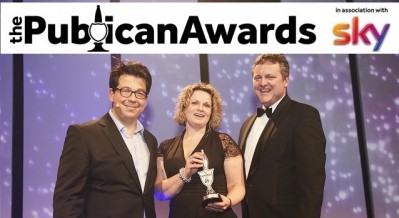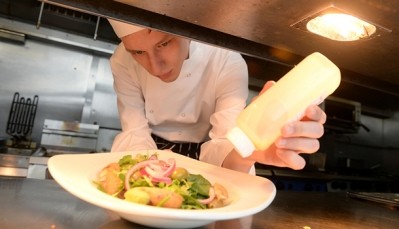Skills Summit
"Even a kitchen porter is vital" - Fuller’s food chief talks chef shortage

Daniel Woolfson: Paul, Gavin, thanks for joining me today. What does the chef recruitment landscape look like at this point in time?
Paul Dickinson: The skill isn’t there any more. Compared to when I was at college and growing up, the convenience to eat out is at your doorstep. So when it comes to actually cooking, people see it more now as a hobby. This means that when you interview chefs it can be really hard to get the detail of what their ability is.
Gavin Sinden: Recruitment for us is actually pretty easy – now we have a recruitment manager and an apprenticeship programme. And we have guys coming through the [Chef’s Guild] scholarship.
DW: It strikes me that, despite the standard of ‘pub food’ having risen phenomenally over the past few years, the word ‘pub’ still has somewhat of a stigma attached to it on that front.
PD: The word 'pub' just needs to be defined to the public. We've got a load of research but no matter who you are in this business, it's a conduit to the public. But I think it's how we communicate it. And we have used Gavin and the 12 finalists from the competition's faces [for recently launched marketing campaign Fuller's Kitchen] because the research tells us that when a customer sees a chef in the kitchen, it gives them confidence. Then when they're handed the food and it's great, it gives them a reason to return.
DW: Do you think the standard of education for young chefs is good enough?
PD: When I learned to make pastry, if I did it wrong, I was told and then taught again to do it right. I'm not damning a lot of colleges. but it seems like a lot of the time they'll just bring a pastry case and fill it. What your grandmother used to teach you just isn't there any more and that's what Europe's good at.
DW: Gavin, how has the atmosphere and environment of kitchens changed since you were coming up through the ranks?
GS: It's very different now. You don't get locked in the dry stores any more or get a kicking in the walk-in fridge any more. There is much more focus on developing people and there has been the realisation that even a kitchen porter is vital to the business. Develop that person, show an interest and they will stay on.
DW: Has the attitude that young people in particular bring to kitchens changed?
GS: I think a lot of them watch these TV shows and think it's all rock 'n' roll but you've got to make personal sacrifices. Some people don't realise that and the first two weeks is a massive shock. You end up sat down with them explaining what happens. You're going to miss birthdays, you're going to miss weddings – hopefully not your own.
- Looking for a new pub job? Visit Morning Advertiser Jobs.
DW: I guess it's about emphasising the phenomenal rewards of working in a kitchen then?
GS: Yes. They and they won't get that anywhere else.
DW: Tell me about the Chefs’ Guild scholarship.
PD: Well, as a young chef I spent my time in a box and wasn’t allowed out very often but as I climbed up the ladder to being a sous chef I started seeing a lot of ‘guilds of this’ and ‘associations of that’ but when I went to them there was no real call to action. It was more of a jolly. So when I joined Fuller’s, I used everything I’ve learned over the past 20 years to bring everyone together and create our own group.
DW: What did you look to for inspiration?
PD: We already had the Master Cellerman, which had so many elements of what we wanted to achieve with food. It seemed right to bring all our chefs together so everyone could share best practice and set standards. At Fuller’s we don’t have one menu, we work with ingredients and components. We use our head chefs to build this: we've got our session in two weeks’ time where we have an inspirational talker. There are 50 head chefs attending and it's really to teach them that if you want something done, you need to say to people: 'these are the skills we're going to use, this is what's available for training'.
DW: Can you give me some examples of Chefs’ Guild initiatives?
PD: We do masterclasses throughout the year. That’s 120 classes through the year where attendance is more than 90%. So the chefs come and we talk about things that we're up to. We do supplier visits, we work really closely with our suppliers. So the guild represents everything to do with chefs – their roles, responsibilities, development from kitchen porter to head chef and from head chef to a head office level. And we use people like Pierre Koffmann as inspiration. [Koffmann's previous restaurant] was the first place I ate as a young boy, and at the recent Chef's Guild graduation ceremony, Pierre was sitting on stage talking to 120 graduates who might have just finished a level one or just finished their journey to becoming head chef.
DW: What kind of results have you seen from the Chefs’ Guild and Fuller’s Kitchen?
PD: All of a sudden we've seen a positive increase in applications. Not so much head chefs because we're doing quite well with them but with the lower level chefs, chef de parties, sous chefs, because they're interested in what's on the inside. So if you tell people what you do, and you do it properly and deliver, then you're going to retain people. Since Gavin's won the Chef of the Year contest, which we had about 25 applicants for last year, we haven't even opened entries for next year's competition but we already have 140 applicants. We don't even know what the ingredients are going to be. But people are emailing and asking when they can do it. It shows the company is focusing on the key people driving the business.








